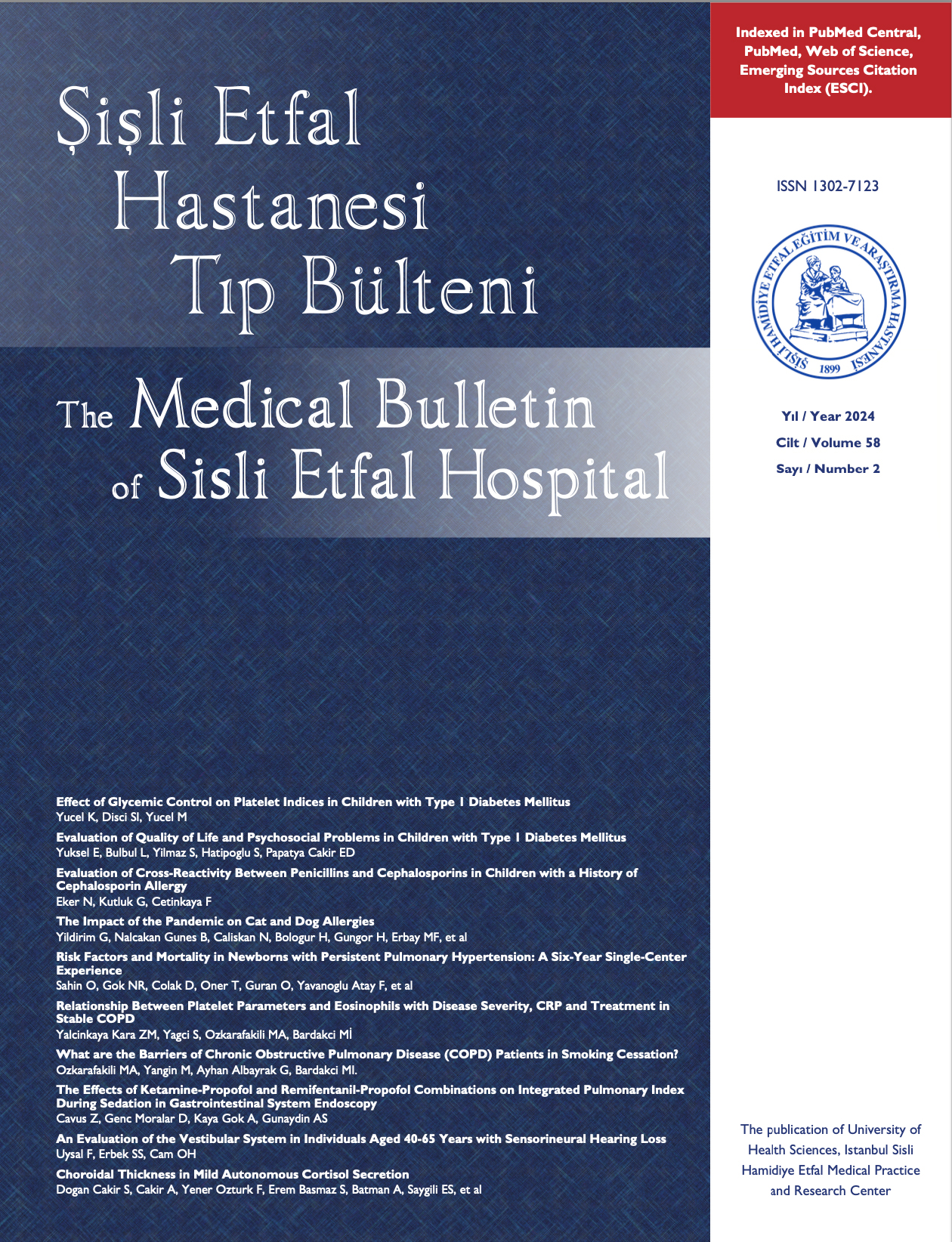
Propofol-İsofluran ve Propofol-Sevofluran Anestezilerinin Böbrek Fonksiyon Testleri ile Derlenme Üzerine Etkilerinin Karşılaştırılması
Sibel Oba, Halis Enhoş, Surhan Özer Çınar, Özgür ÖzbağrıaçıkŞişli Etfal Hastanesi I. Anesteziyoloji ve Reanimasyon KliniğiAMAÇ: Bu çalışmada orta süreli operasyonlarda propofol ile kombine isofluran ve sevofluran anestezilerinin böbrek fonksiyorıları ve derlenme üzerine etkilerini incelemeyi amaçladık.
MATERYAL VE METOD: ASA I-II grubuna dahil 29 hasta üzerinde çalışıldı. Operasyonlar ortalama 90 dk. sürdü. Her iki gruba da aynı indiksiyon anestezisi uygulandı. İdamede, I. grupta (n: 24) %1-2 isofluran, II. grupta (n: 15) %2-4 sevofluran +%40 02 ve %60 N2O ile anesteziye devam edildi. Preoperatif; peroperatif 1. saat, postoperatif I. ve 24. saatlerde üre kreatinin değerleri bakıldı. Derlenme gözlerini açma, verbal uyarılara cevap, ekstübasyon, ismini söyleme, doğum tarihini söyleme süreleri ile incelendi.
BULGULAR: Gözlerini açma verbal uyarılara cevap süreleri, anlamlı (p<0.05), ismini söyleme ve doğum tarihini söyleme ileri derecede anlamlı (p<0.001) olarak sevofluran grubunda kısa bulundu.
SONUÇ: Orta süreli operasyonlarda sevofluran anestezisinin böbrek fonksiyonlarına olumsuz etkisinin olmadığı, uyanma ve derlenmenin isofluran anestezisine göre daha iyi olduğu görüldü.
The effect of propofol-isoflurane and propofol-sevoflurane anestesia on renal function test and recovery characteristics
Sibel Oba, Halis Enhoş, Surhan Özer Çınar, Özgür ÖzbağrıaçıkŞişli Etfal Hastanesi I. Anesteziyoloji ve Reanimasyon KliniğiOBJECTIVE: The aim of this study is to compare the effects of propofol-isoflurane and propofol-sevoflurane anesthesia on renal function and recovery charesteristics in patients undergoing not long lasting surgery.
STUDY DESIGN: 29 patients ASA I or II are scheduled not for lasting surgery were involved in this study. The mean surgery time was 90 minutes. Induction anesthesia was the same in both groups hut anesthesia was maintained in the first group (n: 14) with %1-2 isoflurane and in the second (n: 15) with %2-4 sevoflurane + %40 02 and %60 N2O. Serum BUN and creatine levels were determined preoperatively, in first hour per operatively, 1st and 24th hour postoperatively. The recovery characteristics were studied with the following time criteria; the patients spontaneous opening time, answering time to commands, telling his/her name, birth date and the extubation time.
RESULTS: This study showed that spontaneous opening time, answering time to commands was significantly (p<0.05) and telling his/her name, birth date time was highly significantly (p<0.00 I) shorter in sevoflurane group.
CONCLUSION: in patients undergoing not long lasting surgery sevoflurane anesthesia does not impair renal function and offers clinical advantages (shorter recovery time) over isoflurane anesthesia
Sorumlu Yazar: Sibel Oba, Türkiye
Makale Dili: Türkçe


















